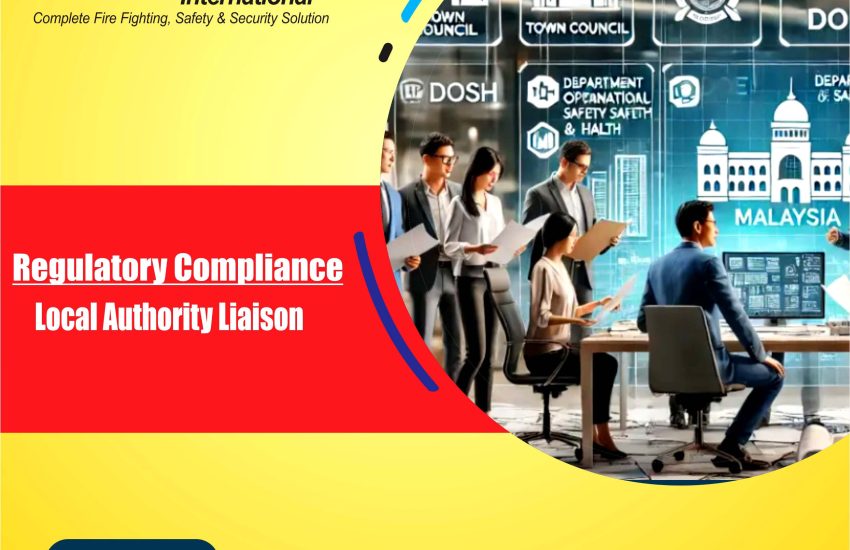Local Authority Liaison In every sector, building strong relationships with local authorities is crucial for ensuring smooth operations and compliance with regulations. Local Authority Liaison (LAL) refers to the interaction between organizations, businesses, and governmental bodies at the local level to maintain communication, address concerns, and meet legal requirements. This guide will provide a detailed overview of Local Authority Liaison, its importance, how to engage effectively with local authorities, and why it’s essential for long-term success.
What is Local Authority Liaison?
Local Authority Liaison involves coordinating with local government departments and officials to facilitate communication between a business, organization, or community and the relevant local authorities. This relationship is vital for obtaining permits, ensuring regulatory compliance, and addressing issues that impact the local community or workforce.
LAL ensures that businesses remain compliant with zoning laws, health and safety regulations, planning permissions, environmental standards, and other legal obligations. Additionally, it can help organizations understand local policies, secure funding, and navigate public services and resources.
Why is Local Authority Liaison Important?
- Ensures Compliance with Local Regulations: Local authorities enforce laws and regulations that businesses must adhere to. Whether it’s health and safety, environmental concerns, or building codes, LAL ensures that businesses understand and meet the necessary standards.
- Fosters Collaboration and Support: A positive relationship with local authorities helps organizations get support for various initiatives. This can include grants, development opportunities, and community projects that benefit both the business and the local area.
- Streamlines Permits and Approvals: Engaging in proactive liaison with local authorities can speed up the permit and approval process, preventing delays in business operations and reducing bureaucratic hurdles.
- Helps with Crisis Management: In case of an emergency, natural disaster, or public health issue, strong ties with local authorities can be invaluable. Authorities can provide vital resources, support, and coordination during such events.
- Community Engagement and Reputation: A good relationship with local government agencies helps businesses improve their reputation in the community. By working with local authorities, organizations can contribute positively to community development, which enhances public relations.
Key Aspects of Effective Local Authority Liaison
- Understanding Local Policies and Legislation: To liaise effectively with local authorities, it is essential to stay informed about local policies, rules, and regulations that affect your business. This includes zoning laws, health regulations, environmental laws, and any other local legislation.
- Establishing Clear Communication Channels: Open and transparent communication is vital in any liaison. Regular meetings, clear reporting, and timely responses help build trust and avoid misunderstandings. Keep local authorities informed about business activities that might impact the community or require their approval.
- Active Participation in Community Development: Organizations should not just seek out local authority liaison when they need something; rather, they should be actively involved in local development initiatives. Participating in community projects or supporting local causes demonstrates a company’s commitment to improving the area.
- Timely Response to Requests and Concerns: Promptly responding to local authorities’ requests and addressing their concerns is crucial. Delays or lack of attention can strain relationships and hinder business operations.
- Leveraging Local Networks: Establish relationships with local business associations, industry groups, or public sector networks that work with local authorities. These connections can provide useful insights and support during liaison efforts.
How to Effectively Engage with Local Authorities
- Research Local Regulations: Before engaging with any local authority, familiarize yourself with the regulations that affect your business. This might include local zoning laws, building codes, health standards, and tax regulations.
- Develop a Strategic Plan: Whether you’re seeking permits, funding, or regulatory approval, having a clear plan is important. Be prepared to present a well-organized case when communicating with local authorities.
- Build Relationships: Regular communication with key personnel within local authorities can help establish trust and credibility. Make an effort to meet with local officials, attend public meetings, and get involved in local events.
- Utilize Local Authority Resources: Many local authorities offer resources, grants, and guidance to help businesses grow. Take advantage of these opportunities to secure funding, access training programs, or receive technical assistance for your projects.
- Stay Proactive: Don’t wait for issues to arise before reaching out. Regularly check in with local authorities, provide updates on your business activities, and stay informed about any upcoming changes in legislation or regulations.
Benefits of Effective Local Authority Liaison
- Improved Permit and License Approval Process: A well-established relationship with local authorities can help expedite the approval process for permits, licenses, and other necessary documents. This can prevent unnecessary delays in business operations.
- Access to Local Resources and Funding: Local authorities often offer financial incentives, grants, and resources to support business growth, sustainability, and development. Engaging with them can help secure these benefits.
- Better Community Relationships: By working closely with local authorities, businesses demonstrate that they are committed to community well-being. This can enhance the company’s reputation and create goodwill among local residents and stakeholders.
- Increased Knowledge and Guidance: Local authorities have in-depth knowledge of regional policies, planning regulations, and community needs. By liaising with them, businesses can receive valuable guidance to navigate complex procedures and make informed decisions.
- Faster Problem Resolution: If issues arise, businesses that have established good working relationships with local authorities will find it easier to resolve matters quickly and efficiently.
Conclusion: Building Strong Local Authority Relationships
Local Authority Liaison is an essential part of maintaining smooth business operations and ensuring compliance with local regulations. By understanding local laws, establishing clear communication channels, and actively participating in community initiatives, businesses can build strong, productive relationships with local authorities. These relationships not only help in meeting legal requirements but also provide opportunities for growth, funding, and community involvement.


